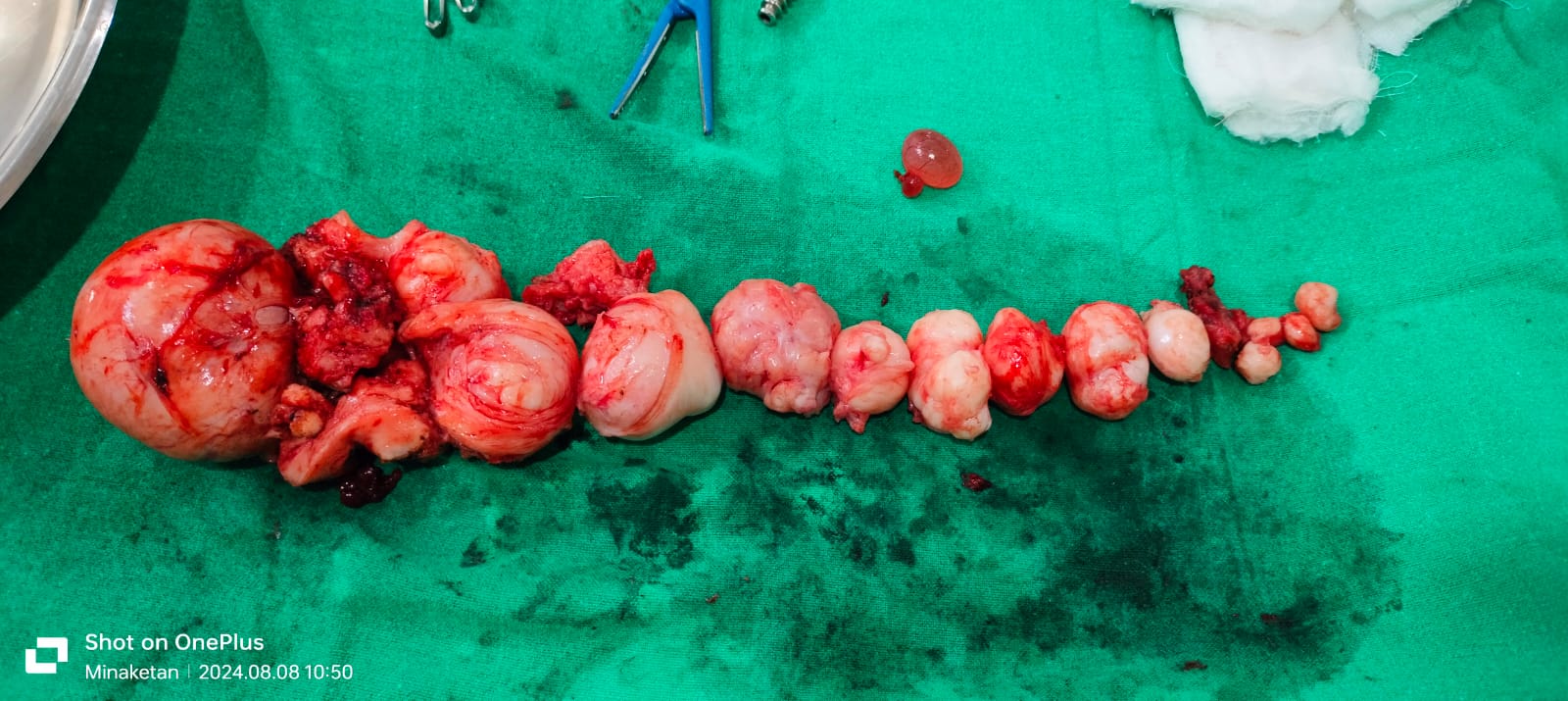


Home > Fibroid



Fibroid treatment under the expertise of Dr. Sanghamitra Dash involves advanced medical techniques to effectively manage and remove uterine fibroids, ensuring minimal discomfort and a swift recovery for patients. Uterine fibroids are non-cancerous growths that develop in or on the uterus, often causing symptoms like heavy menstrual bleeding, pelvic pain, and reproductive issues. Dr. Dash employs state-of-the-art methods to treat fibroids, offering relief and improved quality of life for her patients.
Our Fibroid Treatment Services Include:
Diagnostic Evaluation: Comprehensive assessment using ultrasound and other imaging techniques to accurately identify the size, number, and location of fibroids.
Laparoscopic Myomectomy: A minimally invasive surgical procedure to remove fibroids while preserving the uterus, ideal for women who wish to maintain fertility.




Uterine fibroids are non-cancerous growths that develop in or on the uterus. They can vary in size and may cause symptoms such as heavy menstrual bleeding, pelvic pain, and fertility issues.
The exact cause of fibroids is not known, but they are believed to be linked to genetic factors, hormonal imbalances, and other growth factors. Estrogen and progesterone, the hormones that stimulate the development of the uterine lining during each menstrual cycle, also appear to promote the growth of fibroids.
Common symptoms of fibroids include heavy or prolonged menstrual periods, pelvic pain or pressure, frequent urination, pain during intercourse, and in some cases, fertility problems.
Fibroids are typically diagnosed through imaging tests such as pelvic ultrasound, transvaginal ultrasound, MRI, or through direct visualization using hysteroscopy or laparoscopy.
Treatment options for fibroids include medication management, non-invasive procedures like Uterine Fibroid Embolization (UFE), and surgical options such as laparoscopic myomectomy, hysteroscopic myomectomy, or, in severe cases, hysterectomy.
Recovery time varies depending on the type of surgery performed. Minimally invasive procedures like laparoscopic or hysteroscopic myomectomy typically have shorter recovery times, often ranging from a few days to a couple of weeks.